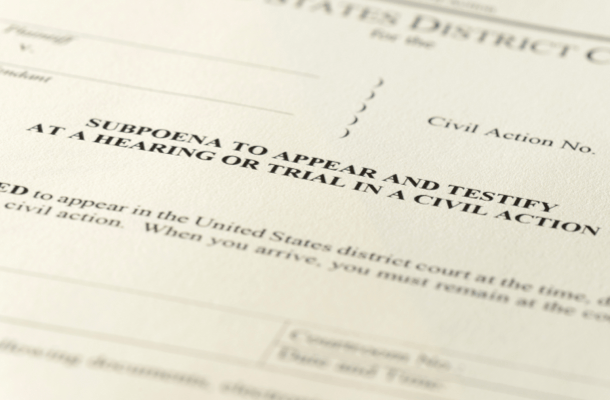MCSDirect reflects our commitment to revolutionizing records retrieval with state-of-the-art technology. This system streamlines the retrieval process, from swift HIPAA-approved request processing to real-time tracking, ensuring a smooth transition to digital delivery. Beyond traditional paper records, we excel in converting and digitizing X-rays, MRIs, PETs, and CT scans — using advanced DICOM technology.
Whether it's X-ray film to CD, CD to trial exhibits, or uploading to an online repository, our services are designed for convenience and efficiency. Our platform not only simplifies the order process but also comes packed with powerful tools for document management, facilitating time and cost savings in records review. With MCSDirect, experience seamless sharing of images with experts and elevate your workflow with our all-encompassing records retrieval solutions.

Transforming Your Retrieval Operations
Trust in MCS Group’s 40+ years of innovative solutions, processing tens of thousands of record requests monthly with expertise in key jurisdictions, national reach, and personalized service. MCS Group partners with insurance carriers — building strong relationships with their law firms to provide a seamless experience at every step. Based on decades of experience, innovative technology, and a dedicated team, MCS Group ensures accuracy and speed in every record retrieval assignment.

Optimizing Records Procurement


A Women-Led Perspective
As a proud, women-owned, certified diversity supplier, MCS Group brings a unique vision and approach to records retrieval services — enriching our partnerships with diverse, inclusive insights. This focus enhances operational effectiveness and brings a culturally aware and comprehensive approach to your unique business needs. Our diversity is a testament to our strength, providing you with more than just a service — a partnership that values perspectives and people.

MCS Group by the Numbers
These figures represent proven results showcasing our commitment to excellence.
Less than
Response Time
Years Industry Experience
Claim Offices and Self-Insured Companies Nationwide
We are
Awesome
Records Retrieval for All
Explore the spectrum of specialized services designed for accuracy, speed, and confidentiality.
-
Insurance and Claims
Efficient, Reliable Records Retrieval for Claims
Explore Solutions for InsuranceMCS Group records retrieval programs are built to your specific needs as we tailor the technology and workflow to each client. After we set up your program based on your needs, our account management team builds relationships with your staff and panel counsel to ensure quality and compliance and provide valuable insights and reporting for continuous improvement.
-
Law Firms
Records Support at Every Turn
Explore Solutions for LegalOur records retrieval programs leverage 40+ years of experience dealing with law firms, particularly attorneys and paralegals. MCS Group account managers and our customer success team are always available for support on any part of the process. As an MCS Group client, our teams build relationships with your claims staff and law firms so that we become your trusted source for records retrieval and all related services such as subpoenas, records summaries, and analysis.
-
Corporate Risk
Reduce Litigation Spend for Corporations
Explore Solutions for CorporationsWhen it comes to leveraging records retrieval services to benefit corporate risk initiatives, MCS Group stands at the forefront. Our teams maximize program value through our constant interaction with outside counsel, extensive reporting, and the next-generation MCSDirect Platform. MCS Group can substantially reduce the cost of obtaining important records for your cases while providing secure and HIPAA-compliant storage. We also build strong relationships with your firms, earning their trust.
Efficient, Reliable Records Retrieval for Claims
MCS Group records retrieval programs are built to your specific needs as we tailor the technology and workflow to each client. After we set up your program based on your needs, our account management team builds relationships with your staff and panel counsel to ensure quality and compliance and provide valuable insights and reporting for continuous improvement.
Records Support at Every Turn
Our records retrieval programs leverage 40+ years of experience dealing with law firms, particularly attorneys and paralegals. MCS Group account managers and our customer success team are always available for support on any part of the process. As an MCS Group client, our teams build relationships with your claims staff and law firms so that we become your trusted source for records retrieval and all related services such as subpoenas, records summaries, and analysis.
Reduce Litigation Spend for Corporations
When it comes to leveraging records retrieval services to benefit corporate risk initiatives, MCS Group stands at the forefront. Our teams maximize program value through our constant interaction with outside counsel, extensive reporting, and the next-generation MCSDirect Platform. MCS Group can substantially reduce the cost of obtaining important records for your cases while providing secure and HIPAA-compliant storage. We also build strong relationships with your firms, earning their trust.

Streamlining Records and Legal Processes
MCSDirect showcases our dedication to innovative records retrieval, offering tools that enhance access and interaction with critical documents. Our expertise extends to managing subpoena requests under the guidance of licensed attorneys. We handle everything from crafting subpoenas to notifying legal teams, ensuring compliance with court procedures while streamlining the process for you.
Moreover, our team of physicians and legal nurse consultants specialize in medical record analysis, providing detailed, chronological summaries of complex medical data. These services are not just about convenience; they represent our commitment to providing specialized, expert support in every aspect of legal and records management.















.jpg?width=240&height=240&name=Adobe%20Express%20-%20file%20(4).jpg)


